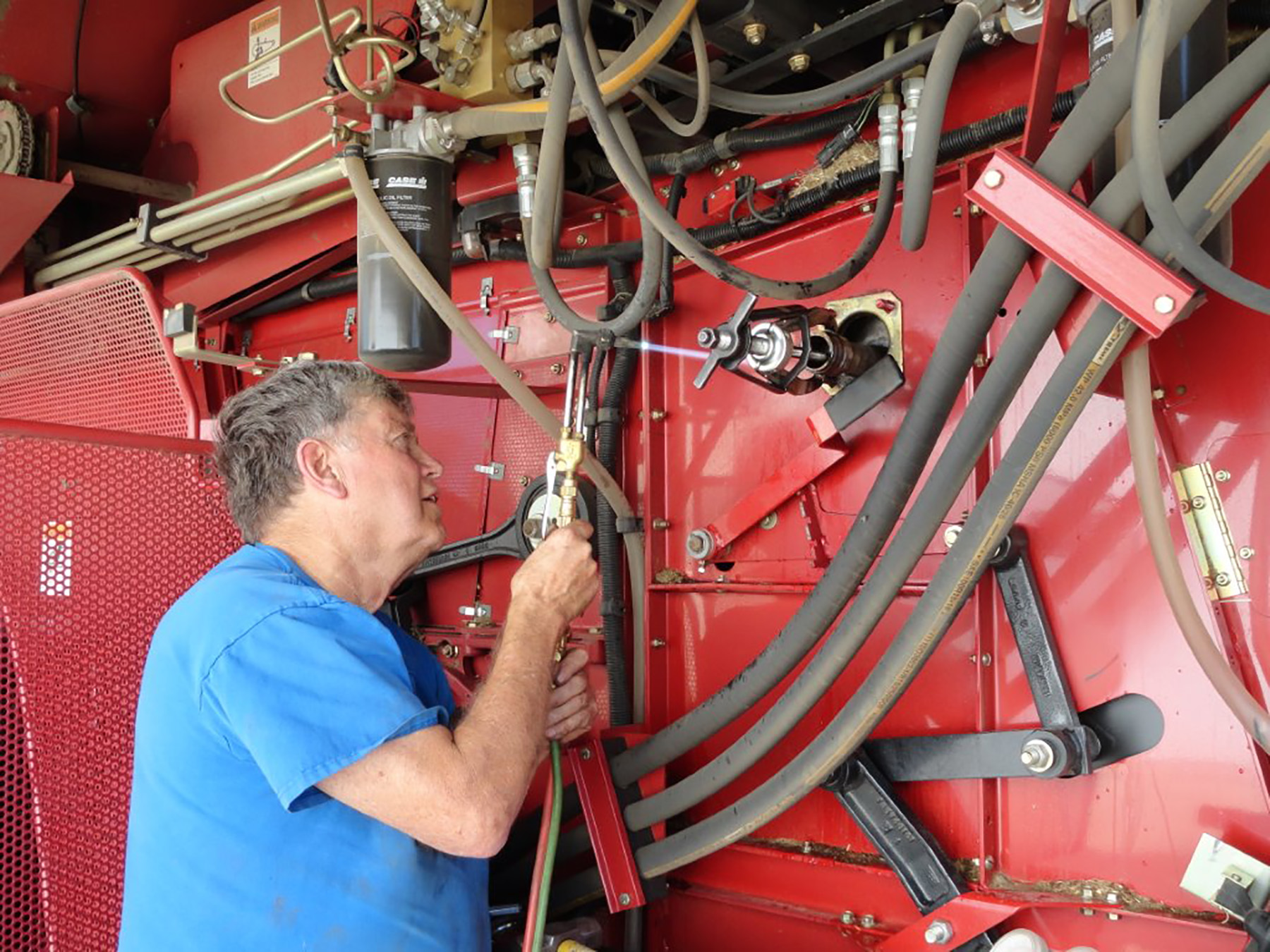Profiling U.S. Wheat Sustainability: David Clough, Hard Red Spring Wheat Farmer
By Elizabeth Westendorf, USW Policy Specialist
David Clough’s career as a farmer has been a journey of constantly evolving technology and improving practices. Clough started farming in North Dakota in 1969. The first few years were difficult because as a first-generation farmer he didn’t have a farm legacy to get him started; he was on his own. Now, he has been farming for almost 50 years, and his farm is thriving. Over the years, Clough has grown HRS wheat, edible beans, sunflowers, soybeans and barley. He says sustainability is a smart business decision and helps ensure his farm’s survival in the future.
Clough is one of six U.S. wheat farmers featured in a USW series on wheat sustainability. These profiles show the differences in wheat production practices across the country and how those farming practices enhance the sustainability of U.S. agriculture.
“As farmers, we have always been conservationists,” said Clough. “The land is our livelihood. We need it, so we try to preserve it in many ways.”
Clough has made a lot of changes on his farm over the years. Now, he uses advanced GPS technology to increase efficiency and conserve resources on his farm. These features mean there are no overlaps when he applies fertilizer or crop protection products, which is good for the environment, but also good for business.
“We weren’t as sustainable when I first started farming almost 50 years ago, but we have changed and adapted and we will keep changing and adapting,” said Clough. “We’re doing it to survive here and to keep our land in good shape for future generations.”
In the years that Clough has been farming, he has had to adapt to new technology, unpredictable markets and lean years. But diversifying his business on the farm helped him weather those changes. Today he has many more crops to plant in rotation, which also helps improve soil health and control weeds. He also sells seed and previously sold farm equipment as a side business. Clough credits his success in farming to his ability to embrace new technology and new sustainable farming practices.
“You’re writing stories as you go through life. How many good stories are you going to write? I have had about 47 chances to tell my farming story. I only get one chance a year to get it right, and some years, you don’t get it completely right,” said Clough. “Each year is a different story, and the way we react cannot be the same either. That is what makes farming challenging and rewarding every year.”
Learn more about Clough and his farm at www.uswheat.org/factsheets. U.S. farmers, ranchers, fishermen and foresters also share their values, sustainability experiences and conservation practices at the U.S. Sustainability Alliance.


